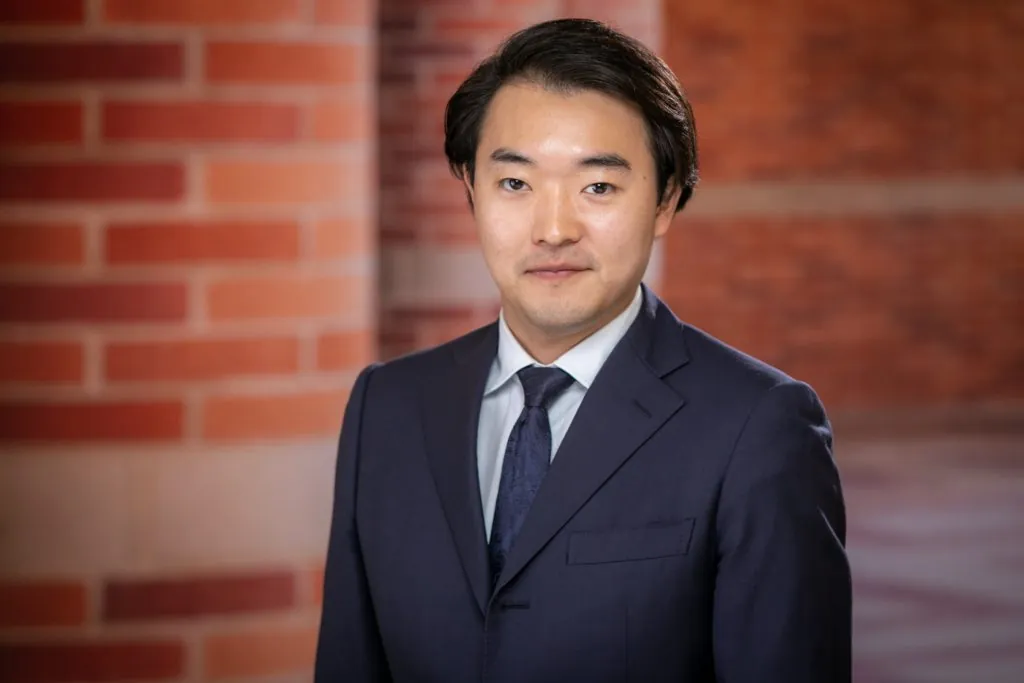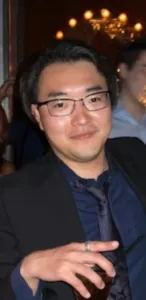
Hideaki Nishioka: “You don’t have to take reckless risks. But you do have to take calculated ones. The MBA is the safest place to do that. You’re investing in yourself. You get two years to explore and grow. Use it.”
When Hideaki Nishioka left Japan to pursue an MBA at UCLA Anderson School of Management, he was driven by more than just ambition. He was following a legacy — one carved out by his grandfather, a small-town entrepreneur who built his family in Osaka.
Hideaki, too, wanted to build something. But instead of bricks and mortar, he envisioned ventures fueled by innovation, resilience — and a little bit of risk.
Fast forward to 2025, and Nishioka is now leading two Japanese dining brands, Tokyo Shokudo and Tendon Tempura Carlos Jr, with eight locations in Texas, California, and Illinois and plans to reach 12 by the end of the year — and 30 in 2028. It’s a surprising pivot from his original post-MBA path in tech and venture capital — but one that reflects a deeper commitment: sharing authentic Japanese culture with American communities, and empowering the next wave of Japanese MBAs to take bold leaps of their own.
A LANGUAGE OF NUMBERS — AND DISCOVERY

 Nishioka’s story starts in Osaka, where he spent his formative years commuting through Kyoto, a city filled with foreign tourists. Despite being surrounded by English speakers, he didn’t see a need to learn the language.
Nishioka’s story starts in Osaka, where he spent his formative years commuting through Kyoto, a city filled with foreign tourists. Despite being surrounded by English speakers, he didn’t see a need to learn the language.
“My language was math,” he says. “I wanted to be a math professor. Numbers were enough for me.”
That changed in college. At the Keio University in Tokyo, Nishioka majored in mathematical finance, which required him to read academic papers in English. A trip to the UK, his first international trip, opened his eyes even further.
“I realized the power of language — how it could expand your world,” he says. From that point on, English became more than a requirement. It was a gateway.
THE CORPORATE YEARS: ITOCHU & GLOBAL M&A
After graduating, Nishioka joined Itochu Corporation, one of Japan’s largest trading and investment firms. For five years, he worked on international projects, helping his team improve the profitability of invested brands across the U.S., Europe, and Asia.
“I was flying to New York, Italy, Vietnam, Hong Kong. I loved it,” he says. One of his most memorable projects involved organizational restructuring of a U.S. bag brand, a project that required collaboration with top management members across Japan, Asia, and the U.S.
The travel and the work “gave me a global perspective,” Nishioka says. But he also started to wonder: What if I lost the corporate name and only had my own? Could I still succeed?
A GRANDFATHER’S INSPIRATION AND A PANDEMIC-ERA MBA


Hideaki Nishioka: “It’s easy to go back to Japan. But staying here is where the challenge — and the opportunity — lies”
His grandfather’s entrepreneurial spirit had always loomed large, but it was his passing that sparked Nishioka’s next move.
“It felt like a signal,” he says. “I wanted to challenge myself.” He applied to top U.S. MBA programs with strong entrepreneurship ecosystems — Stanford, Wharton, Berkeley, and UCLA. He was ultimately accepted at UCLA Anderson, joining the Class of 2022.
But 2020 was no ordinary year. With the pandemic in full swing, nearly 70% of Japanese MBA admits deferred their start. Nishioka did not. “As an entrepreneur, you can’t skip years. You have to manage through hard times,” he says. About 70% of his MBA experience was online, including the first year. Because of a Los Angeles County regulation, he was forced to start the first five months of the program remotely from Japan, navigating an immense time difference in addition to the unfamiliar digital format.
“It was tricky,” he admits, “but our class was strong. People who showed up in 2020 took a risk. We had something to prove.”
LESSONS FROM THE STARTUP WORLD
At Anderson, Nishioka dove into the startup scene, interning at a venture capital firm in L.A. that had invested in SpaceX. He focused on entrepreneurship and investment management, co-founding a 3D printing tech startup after graduation.
But the experience wasn’t what he imagined.
“You raise venture capital funding, but soon after you spend more time pitching investors than building your business,” he says. After two years and a falling out with his co-founder, Nishioka exited.
“I wanted to be in a business where cash flow mattered — where I could apply what I learned in my MBA.”
FOOD, CULTURE & CASH FLOW
That realization led him to the restaurant industry — a long-standing interest that now aligned with his goals. “Everyone who goes to Japan comes back saying the food is better,” he says. “I wanted to bring that quality here, but make it affordable. You shouldn’t have to pay $100 for great Japanese food.”
His restaurants, Tokyo Shokudo and Tendon Tempura Carlos Jr, aim to deliver that. With average customer spending of around $25, he’s carving a niche in local markets where Japanese food is popular but often limited in variety. “There’s more to Japanese cuisine than sushi and ramen,” he says.
Managing eight — soon to be 12 — locations is no small feat. Based in Plano, Texas, Nishioka must often travel to oversee operations in Chicago and L.A., working closely with store managers to manage costs and maintain quality.
“It’s like running a school,” he says. “It’s all about the people in this industry. I respect, train, work, and grow with them. I have a great team, and they grow the business.”
A MESSAGE TO FUTURE JAPANESE MBAs
Despite his busy schedule, Nishioka remains committed to helping future Japanese MBA students. During his time at Anderson, only three Japanese students were in his class. “That number used to be more than 10,” he says. “COVID changed that. Many deferred, some never came.”
Part of the decline, he believes, is cultural. “In Japan, there’s pressure to conform. You’re not supposed to stand out. But in the U.S., you have to. You have to speak up. That’s hard for many Japanese students, but I was fortunate that my classmates helped me transition toward that way.”
His message to those considering an MBA abroad is clear: Don’t be afraid to carve your own path.
“You don’t have to take reckless risks,” he says. “But you do have to take calculated ones. The MBA is the safest place to do that. You’re investing in yourself. You get two years to explore and grow. Use it.”
He also hopes more Japanese students will choose to stay in the U.S. after graduation, despite falling enrollment numbers across the U.S. Nishioka says that according to data gleaned from Japanese sources, the number of Japanese MBA students in U.S. MBA programs has dropped significantly in the last two decades, from around 250 in 2000 to just over 100 in the Class of 2026.
Although the percentage of self-sponsored students from Japan has remained around 40%, Nishioka wants his Japanese fellows to venture across the ocean — because, he says, he passionately supports his fellow aspirational MBA applicants and leaders for Japan.
“It’s easy to go back to Japan. But staying here is where the challenge — and the opportunity — lies.”
BIGGER THAN BUSINESS
As he grows his restaurant empire and supports the next wave of Japanese entrepreneurs, Nishioka is building something far larger than a business. He’s building a bridge — between cultures, between career paths, and between generations.
And if his grandfather could see him now?
“I think he’d be proud,” Nishioka says, smiling. “I took the risk just like he did 60 years ago. I did my best.”
Know a story like this one of an international student coming to the U.S. for an MBA and a career? Let us know at Poets&Quants: Email [email protected].








